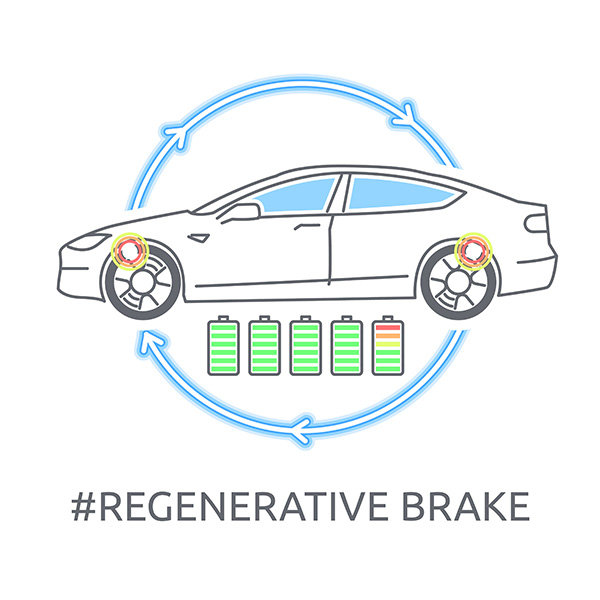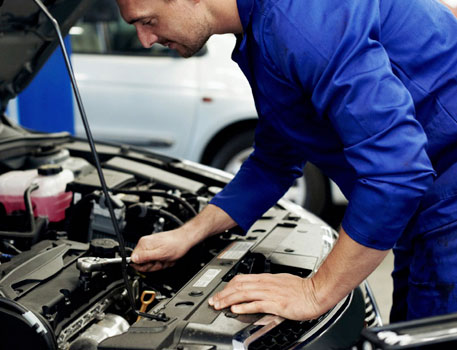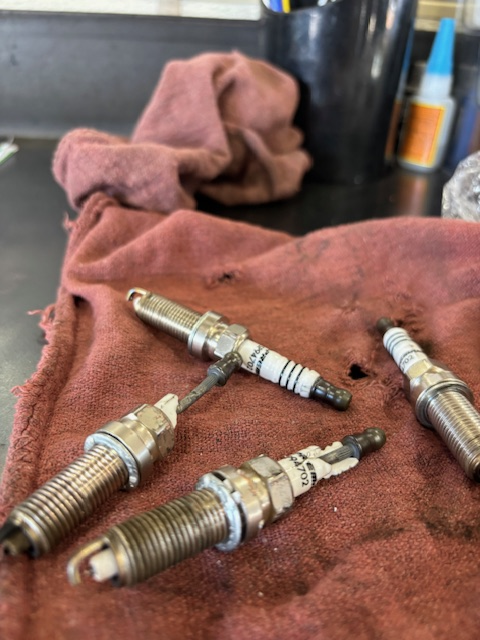Posted on 5/29/2024

In today's world of automotive innovation, hybrid cars are gaining popularity for their fuel efficiency and eco-friendliness. One of the key features that sets hybrid vehicles apart is regenerative braking. But what exactly is regenerative braking, and how does it work? If you've ever been curious about this technology and its benefits, you're in the right place. We'll explain regenerative braking, exploring its mechanics, advantages, and impact on the driving experience. An Overview of Regenerative Braking Regenerative braking is a technology used in hybrid and electric vehicles to capture and store kinetic energy generated during braking. Unlike traditional braking systems, which convert kinetic energy into heat and dissipate it as wasted energy, regenerative braking harnesses it and stores it for later use. This innovative approach impro ... read more
Posted on 5/22/2024

Many modern vehicles come with what manufacturers label as "lifetime fluid" for components like transmissions and differentials. This can be enticing as it suggests minimal maintenance, but is it truly best to avoid changing or servicing these fluids? What Is Lifetime Fluid? Lifetime fluid is designed to last the vehicle's lifetime under normal driving conditions. Manufacturers claim these fluids do not need to be changed, theoretically saving you maintenance costs and hassle. However, "lifetime" can be a misleading term. Pros and Cons Pros: - Convenience: No need for regular fluid changes, which can save time and money. - Cost Savings: Potentially lower maintenance costs over the vehicle's lifespan. Cons: - Fluid Degradation: Over time, even the best fluids can break down, leading to decreased performance and potential damage. - Driving Conditions: Harsh driving conditions (towing, extreme tempera ... read more
Posted on 5/15/2024

In today's fast-paced world, convenience is king, and that extends to the automotive industry. Many customers seek quick quotes over the phone before committing to services or repairs for their vehicles. However, while phone quotes may seem efficient, they often fall short of expectations, leaving both customers and service providers frustrated. Let's delve into the reasons why phone quotes do not work out in the automotive industry. 1. Lack of Precision: One of the primary drawbacks of phone quotes is the inability to accurately assess the scope of work without physically inspecting the vehicle. Without seeing the car in person, it's challenging to provide an accurate estimate, leading to misunderstandings and potential discrepancies in pricing. 2. Hidden Issues: Vehicles are complex machines, and sometimes, underlying issues are not immediately apparent. A quick phone conversation may not uncover these hidden problems, leading to unexpected costs and del ... read more
Posted on 5/7/2024

When it comes to auto repairs, one crucial aspect often overlooked is the quality of the parts used. While it may be tempting to opt for cheaper alternatives, the long-term repercussions of using low-quality parts can far outweigh any initial cost savings. At Dickerson Automotive, we understand the significance of using only the highest quality parts in every repair job we undertake. Reliability and Performance Quality parts are synonymous with reliability and performance. Whether it's brake pads, spark plugs, or suspension components, investing in top-tier parts ensures that your vehicle operates at its optimal level. Inferior parts may fail prematurely, leading to frequent breakdowns and costly repairs down the line. By choosing quality parts, you not only enhance the performance of your vehicle but also reduce the likelihood of unexpected issues arising. Longevity One of the primary benefits of using quality parts is longevity. High-quality ... read more
Posted on 4/29/2024

In the automotive repair industry, one of the toughest challenges we face is dealing with aftermarket warranty companies. While some of these extended warranty providers are great to work with, many others impose strict pricing constraints that can severely impact our ability to maintain profitability and provide quality service to our customers. At Dickerson Automotive, we strive to be transparent with our customers about the constraints and challenges associated with aftermarket warranty policies. We inform them upfront that they may be responsible for any costs that the warranty company does not cover, including labor and parts markup. However, navigating the claims process with these warranty companies often proves to be a daunting task. Many of them impose pricing restrictions on labor rates and parts markup, sometimes even demanding that we provide parts at no markup whatsoever. This puts us in a difficult position, as markup on parts is essential for our profitability and sust ... read more